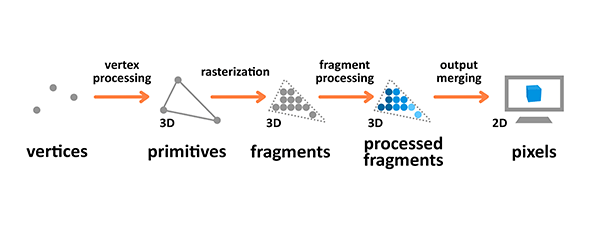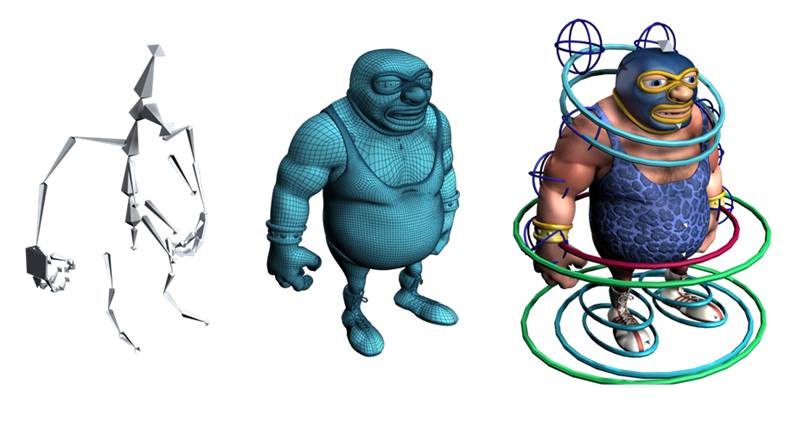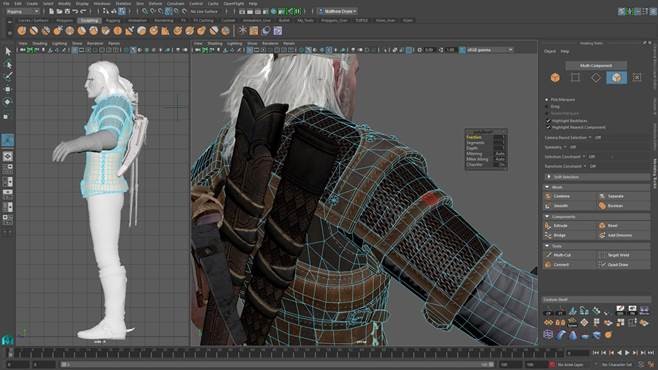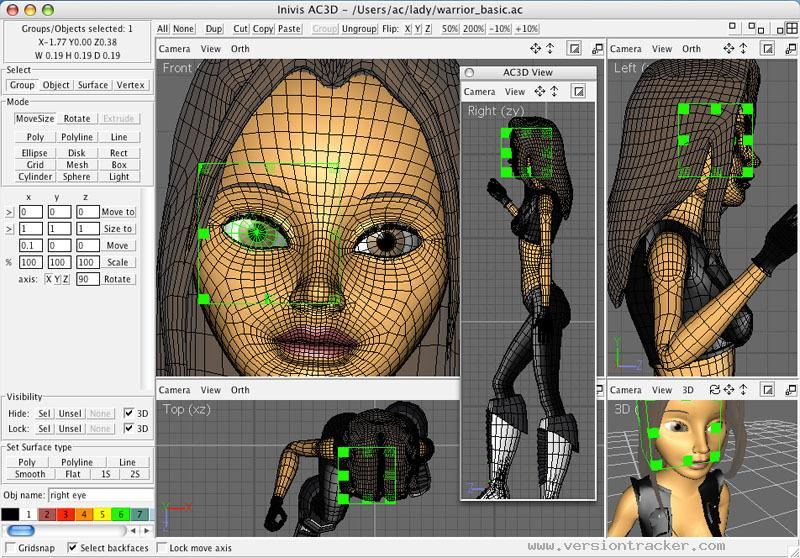
Gaming is a varied industry, with a wide range of job opportunities available
There has been plenty of doom and gloom across some business sectors over the past decade, mainly because of the global economic downturn, poor return on investments, recent concerns over Brexit and a range of other factors. However, some industries have remained buoyant and benefitted from significant growth.
The gaming industry is a case in point. Last year it generated a record £4.33 billion, and the market is growing at a rate of more than 6% every year. There was also a significant spin-off into the merchandising and film sectors worth £100.5 million. Overall, growth in the UK’s media and entertainment industry looks set to continue with the compound rate over the next five years estimated to be 3% per annum. The informed prediction is that by 2021 the industry will be worth some £72 billion. The digital services we all use are likely to account for 60% of the revenue generated, with an annual compound growth rate of 5-8%. E-sports and Virtual Reality (VR) are expected to be the fastest growing sectors.
Almost half the UK population now regularly play video games on their mobile devices, on a games console or PC. That somewhat surprising statistic is mainly due to the proliferation of smartphones that allow users to play their favourite games wherever they might be. With a quick tap on the screen, users can download games and watch eSports gamers in competition. That degree of enthusiasm and interest must be viewed with envy by many other business sectors.
The digital revolution of the past decade or so has seen incredible advances in game technology and design, creating something that people can enjoy playing in a spare few minutes, during a lunch break or when travelling on public transport. Not convinced? Just get on a commuter train and look at the other passengers. Ten years ago, they would have been reading books or newspapers. Today, at least half will be engrossed in using their favourite mobile phone apps.
So, we are talking about an industry with an extremely rosy future, one that is a very appealing proposition for someone thinking about what career path to take. Anyone currently working for A-Levels or deciding what course to take at university should seriously consider tailoring their study to qualify them for one of the many opportunities available in the games industry.
If you have a passion for gaming, could you turn your hobby into a successful career? Let’s find out more.

Vertex and Pixel Shaders provide important functions in the graphics process
New games for new gamers
The new dynamic does not just mean the gaming industry has more opportunities to sell games. It has also led to whole new sectors among the new target demographics. There is a well-worn statistic that there are more female gamers than male, a fact that social games like Farmville have been quick to exploit.

From start to finish, character design is a detailed and complex process
Well-liked games start out as a mission for a design team that then conducts research, formulates a plan and comes up with a final design. That process can take more than a year and usually involves the input of more than 12 individuals. The team will be comprised of the game designer, server developer, front-end developers, a mathematician, a game tester, project manager, one or more creative artists and a configurator. Speciality graphic designers might also be called in to aid with specifics.
More employment opportunities than ever
Computer gaming was built on rapidly developing technology that has created a buoyant industry with a diverse and expanding customer base. That is why pursuing a career in the industry makes sense, particularly for graduates.
There are numerous potential openings you might consider. The list below should be helpful but is not exhaustive. Average starting salaries are given.

3D Graphics pipelines are a conceptual model to aid developers
Game Designers - £19,000 to £25,000
Basic drawing and visual design skills
Fluent in 3D and 2D animation and graphics packages.
Programming skills at least to scripting level
Animators - £25,000
Must be creative and imaginative
Modelling and drawing skills
Presentation and communication skills
IT skills
Illustrators - £15,000 to £20,000
Drawing and IT skills
Must be creative and imaginative
Must have an eye for design and detail
Technical Artist - £24,000
Technical artists are a bridge between the programmers and artists creating a game
They need an ability to ensure that art features can be incorporated into a new game
3D Modeller - £25,442
Advanced computer and maths skills
Design and creative skills
3D Artist - £25,442
Artistic and creative qualities
Technical skills
For character work - acting talent and good observational skills
Art Director - £18,000 to £25,000
Creative
Advanced computer skills in design and art software packages
The ability to work well in a team
Needs interpersonal and communication skills
UI Designer - £40,000
Experience with Axure, Invision, Marvel and Sketch
Familiar with Adobe Creative Suite
Some user research experience
Being able to demonstrate understanding of principles of UI Design
Visual Effects Artist - £20,000 to £32,500
Bachelor’s Degree in visual effects or computer animation
Advanced technical software skills
Video Graphics Artist - £25,000
Art skills
Experience in graphic design
3D Design skills
Knowledge of animation
1) Design

Motion capture is also involved when designing characters
Computer games design and programming degrees are available at several UK universities. The most highly regarded courses are at Staffordshire University at Stoke on Trent, Manchester Metropolitan University, Brunel University London, the University of Southampton and Imperial College London.
Once a degree has been secured a graduate might be lucky enough to walk straight into a well-paid job in the industry. If that is not the case then to get a foot in the door he or she should look for a company that is willing to host a keen individual for some work experience. If that goes well and the graduate “shines” in the work environment, it can often lead to full-time employment.
Although a thorough knowledge base is essential It is not all about technical know-how, a designer must also have an inventive, artistic and creative element to his or her personality that can be called upon to bring fresh and innovative ideas to games.
To become a successful game designer is not easy and there will be pitfalls along the way, but get it right, and the sky is the limit. Just ask Brendan Greene – three years ago, he was living on income support while his family begged him to stop “messing around with games” and get a job. Then, he released PlayerUnknown’s Battlegrounds. The game broke all records and made him $100 million in the first three months.
2) Artwork

Character design is very detailed, so the player has an authentic gaming experience
A great game needs a great look, or it will go nowhere. If you have an artistic background, there are a wealth of career opportunities out there. Whether it is the latest multiplayer action game or an online slot app, the realism and originality of its animation will dictate whether it sinks or swims.
3) Sales and marketing
As we mentioned earlier, a consequence of the gaming boom is that it is an enormously competitive industry, with lots of businesses operating in the same space. Getting a game to market on time and convincing the public that it is better than anything else currently available is vital. You might not be all that skilled technically, but if you have a passion for gaming and a talent for developing a unique digital marketing campaign, that could be an ideal combination for a successful career in the industry.
4) Testing
Testing games for a living might sound like heaven to the keen gamer, but there are downsides. As a tester, you are not just playing a game, you are critically appraising it, and you need to be able to identify and comment on glitches in terms the technical team will understand. It is also fair to say that testers do not earn big money. Having brought you down to earth with the bad news, the positive side of the coin is that testing is a useful first step in the industry that can lead to a full development role.
Long-term career prospects
Gaming is a sector that is evolving at an incredible rate. We mentioned earlier how the mobile revolution changed the face of the industry, and it is easy to see where the next game changer is coming from – Virtual Reality.
Virtual Reality (VR) is a technology that has been promised for years, but it is here at last, and VR headsets look set to be the “must have” gift this Christmas.
Game developers are tripping over one another to keep up and exploit this new technology. They are striving to come up with ever more immersive and engaging gaming experiences using VR. Beyond that, who knows what will be the next technological innovation? There has never been a more exciting time to be part of this flourishing industry.
Share this article
Popular posts
Register now with StudentJob
Do you want to be kept up to date on the latest jobs for students? Register for free on StudentJob.
Register


